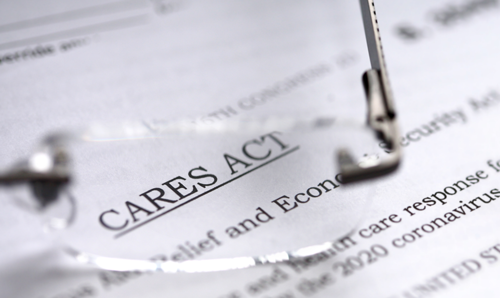
On April 21, 2020, the United States Senate passed the Paycheck Protection Program and Health Care Enhancement Act (the Act). The House is expected to pass the Act and send it to the President on April 23, 2020. Broadly speaking, the Act amends the CARES Act to provide additional funding for the Paycheck Protection Program, hospitals and providers, and includes funding for coronavirus testing.
The Act provides an additional $75 billion on top of the $100 billion appropriated in the CARES Act for the Public Health and Social Services Emergency Fund of the Department of Health and Human Services (DHHS) for reimbursement to eligible healthcare providers for healthcare-related expenses or lost revenues that are attributable to the coronavirus. The Act leaves in place the terms of the appropriation as initially provided in the CARES Act:
- “Eligible healthcare providers” are public entities, Medicare or Medicaid enrolled suppliers and providers, and other for-profit and nonprofit entities that provide diagnoses, testing, or care for individuals with possible or actual cases of COVID-19.
- The funds may not be used to reimburse expenses or losses that have been, or will be, eimbursed from other sources.
- The Act gives DHHS broad discretion in reviewing applications from providers to determine which providers will receive payments.
In addition to the hospital and provider funding, the Act includes $25 billion for necessary expenses to research, develop, validate, manufacture, purchase, administer, and expand capacity for COVID-19 tests.
Specific funding is provided for:
- $11 billion for states, localities, territories, and tribes to develop, purchase, administer, process, and analyze COVID-19 tests, scale-up laboratory capacity, trace contacts, and support employer testing. Funds are also made available to employers for testing.
- $2 billion provided to States consistent with the Public Health Emergency Preparedness grant formula, ensuring every state receives funding;
- $4.25 billion provided to areas based on relative number of COVID-19 cases;
- $750 million provided to tribes, tribal organizations, and urban Indian health organizations in coordination with Indian Health Service.
- $1 billion provided to Centers for Disease Control and Prevention for surveillance, epidemiology, laboratory capacity expansion, contact tracing, public health data surveillance and analytics infrastructure modernization.
- $1.8 billion provided to the National Institutes of Health to develop, validate, improve, and implement testing and associated technologies; to accelerate research, development, and implementation of point-of-care and other rapid testing; and for partnerships with governmental and non-governmental entities to research, develop, and implement the activities.
- $1 billion for the Biomedical Advanced Research and Development Authority for advanced research, development, manufacturing, production, and purchase of diagnostic, serologic, or other COVID-19 tests or related supplies.
- $22 million for the Food and Drug Administration to support activities associated with diagnostic, serological, antigen, and other tests, and related administrative activities;
- $825 million for Community Health Centers and rural health clinics;
- Up to $1 billion may be used to cover costs of testing for the uninsured.
We will continue to monitor developments and provide updates accordingly.
Our Health Law Ticker is a one-stop resource for everything new and noteworthy in healthcare law. We cover recent developments in healthcare legislation, healthcare reform, Medicare/Medicaid, managed care, litigation, regulatory compliance, HIPAA, privacy, peer review, medical staffs and general business operations for healthcare companies and licensed healthcare professionals.
Stay Connected
 RSS Feed
RSS Feed
